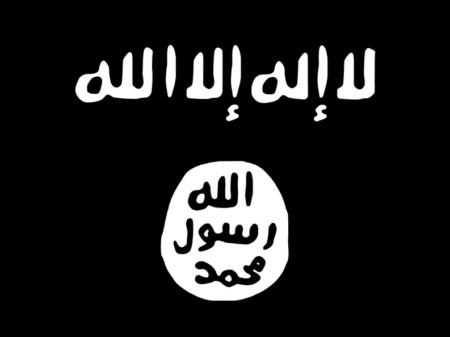Christian response to ISIS
Q. What is the Christian response to ISIS? (Harrisonburg, Virginia)
A. The Christian response to ISIS is to deplore their violence and to seek the most effective means to stop it.
In March 2015, in what was seen as an unusually blunt endorsement of military action, the Vatican's representative to the United Nations in Geneva called for a coordinated international force to stop the "so-called Islamic State." Archbishop Silvano Tomasi said that any anti-ISIS coalition should include the Muslim states of the Middle East and unfold under the sponsorship of the United Nations.
Archbishop Tomasi noted that everything possible ought to be done first to achieve a political settlement without violence, "but if that not possible, then the use of force will be necessary."
Following the ISIS bombings in Paris in November 2015 (which Pope Francis deplored as "intolerable" and said "using God's name to justify this path is blasphemy"), Vatican Secretary of State Cardinal Pietro Parolin backed the possibility of global military action against ISIS militants. He referenced the Catechism of the Catholic Church (No. 2308), which states that "as long as the danger of war persists and there is no international authority with the necessary competence and power, governments cannot be denied the right of lawful self-defense, once all peace efforts have failed."
A parishioner happened to ask me, after the Paris bombings, how he could ever "forgive ISIS." I told him that he didn't have to, because forgiveness (in my mind) presumes remorse on the part of the perpetrator and a pledge of changed behavior, both of which are notably lacking in the ISIS terrorists. I said that we should pray for those benighted individuals and leave judgment of them to God -- while also remembering, of course, to pray especially for their victims.
Q. I am the mother of three adopted children, ages 5 to 15. We live in a small house with no extra space. A year ago, we came to my mother-in-law's rescue when she was having some problems and offered her temporary shelter until she could get back on her feet.
Now, though, she is still with us and depends on us to do everything for her. She just sleeps, eats (she weighs over 300 pounds) and talks on her cellphone; she interferes in the life of the family and refuses to help with any chores of the house. I am on disability myself, our family life is unhealthy and the children are suffering from her presence in our midst.
My question is this: Would it be uncharitable for me to tell her to go live on her own and to leave this house before I go crazy? (City of origin withheld)
A. Your first obligation is to your husband and to your children. If, as you say, your mother-in-law's presence is seriously impacting your family's health and happiness, she needs to leave. And you need, very quickly, to have an honest conversation with your husband as to how to accomplish this in as kind a manner as possible (keeping in mind that there is, of course, no perfect way.)
Can you help to guide your mother-in-law into an alternate living arrangement? (Perhaps a local parish priest or Catholic social services agency could advise you on some suitable alternatives that would address her physical and psychological concerns.) Far from prohibiting this course of action, charity in fact demands that you take this courageous step -- for the greater good of your entire family.
---
Questions may be sent to Father Kenneth Doyle at askfatherdoyle@gmail.com and 40 Hopewell St. Albany, N.Y. 12208.
- Father Kenneth Doyle is a columnist for Catholic News Service



















